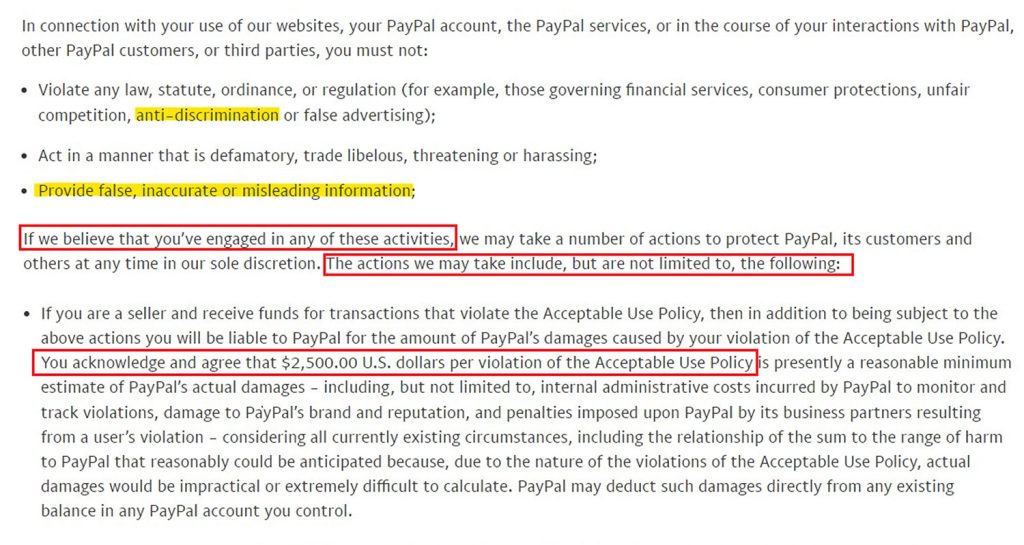Vague rules in PayPal’s Acceptable Use Policy (AUP) have sparked concerns the company has quietly reinstated its controversial $2500 fines for “misinformation.”
With the spotlight on PayPal’s potential abuse of their AUP, news spread like a wildfire alleging the company had quietly sneaked the “misinformation” fine back into their user agreement.
Answering those concerns, PayPal responded to an enquiry from The Daily Wire, reassuring customers the company had not reinstated the retracted clause.
Caldron Pool reported at the time how PayPal was in damage control over an ill-defined new policy that could have allowed the organisation to fine customers $2,500 USD for anything the electronic payment processor arbitrarily defined as “hate speech, racism, intolerance, or misinformation.”
The Daily Wire’s Ben Zeisloft – first to break news of PayPal’s “mark of the beast,” misinformation add-on in early October – ‘confirmed via internet archives,’ as well as with PayPal, that ‘neither their user agreement nor their AUP has been amended to include the nixed provisions.’
However, as Zeisloft advised, even though there has been no change, ‘the present user agreement had already enumerated that $2,500 sanctions can be applied to accounts found in violation of the [original] acceptable use policy.’
In other words, the cancel culture mechanism where PayPal can punish customers for ‘wrong-speak,’ and thinking, or voting a certain way, was already in place.
PayPal’s infamous, ill-defined, ‘misinformation penalty’ simply drew attention to this fact.

Even though specific terms such as misinformation, hate speech, violence, racism, and intolerance, are not mentioned, PayPal’s current Acceptable Use Policy muddies its insistence that the original ‘misinformation’ clause was a ‘mistake.’
Hence, the new concerns that PayPal was quietly reinstating, what Elon Musk, David Marcus, and David Sachs – all former company executives – agreed was ‘Insanity: a private company now gets to decide to take your money if you say something they disagree with.’
Despite their reassurances against corporate overreach, PayPal’s User agreement still holds the door open for the online third-party financial service to impose on its customers a USD $2,500 fine for anything the company arbitrarily views as ‘misinformation.’
Forbes agrees, writing, whilst ‘the note about misinformation was removed from the acceptable use terms, the $2,500 penalty for violations remains, causing continued concern.’
Although ‘violating PayPal’s “restricted activities” portion does not result automatically in the $2,500 fine that breaching the “acceptable use” agreement does,’ Forbes added, ‘it may still result in charges, account suspension or other punitive actions.’
The vague nature of ‘misleading information,’ and ‘anti-discrimination,’ coupled with PayPal’s repealed AUP ‘protection provisions,’ raise justifiable questions about PayPal’s end-game.
Rightly so, given the power of Silicon Valley’s technocracy, and PayPal’s tendency to cancel user accounts in the name of protecting woke ideals.





















You must be logged in to post a comment.